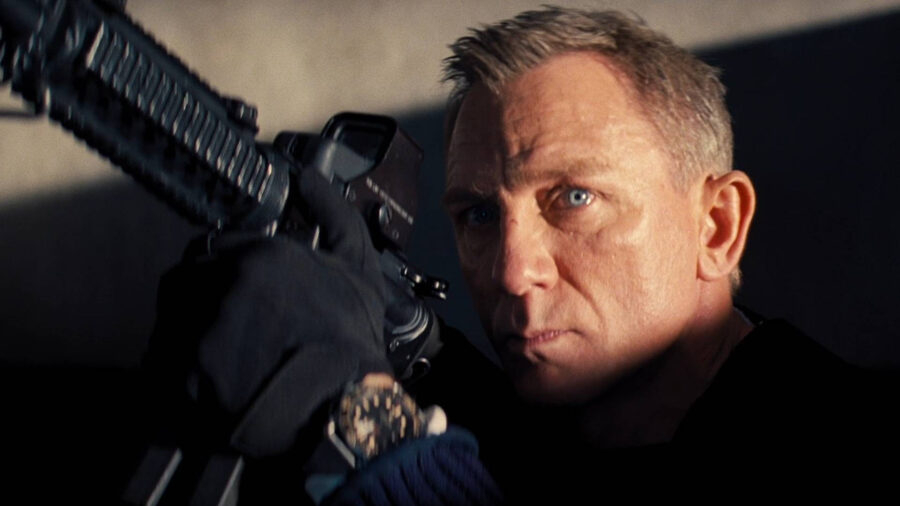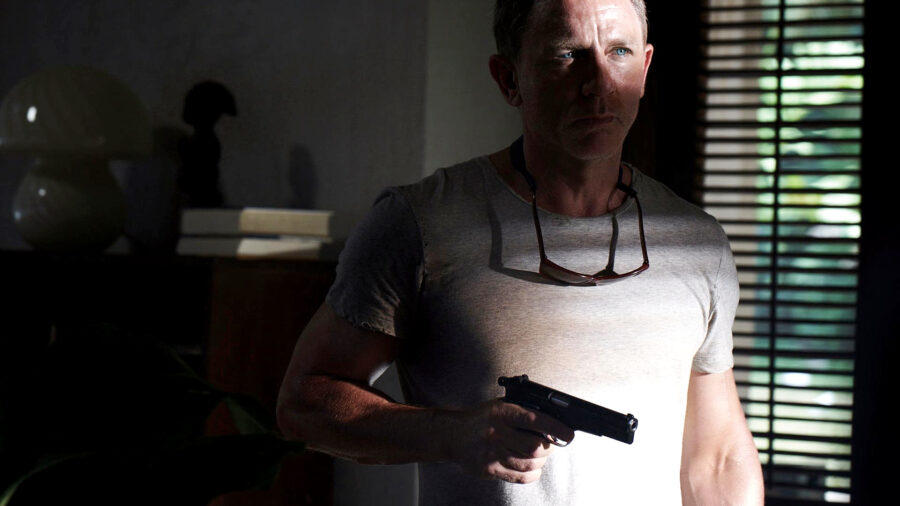No Time To Die Review: Daniel Craig Gets Serious With His Goodbye
Does No Time to Die give Daniel Craig's James Bond a fitting farewell?
This article is more than 2 years old

He’s licensed to kill, he’s got no time to die, and he’s the longest-running James Bond. After an on-screen span of 15 years and racking up five movies as the titular MI6 super-spy, Daniel Craig‘s swan song is a suitable sendoff for his saga. No Time to Die possesses a convincing “end of an era” feeling about it through its melancholic atmosphere that’s touched with giddy moments of high-energy action. There’s a heavier, more resonant attitude that’s attached to No Time to Die as the James Bond saga strays away from its traditional gimmickiness and instead takes on a more serious, more emotionally-weighted tone.
Craig takes it upon himself to reject the stoicism as No Time to Die opens itself up to every element that the ongoing saga has previously rejected: love interests return, ghosts of past regrets surfacing, and Bond keeping his heart on his sleeve. It challenges his previous love-them-and-leave-them attitude towards women that cross his path, and he’s white-knuckling his past affairs, breaking his uncaring facade. His traditional coolness is chipped away at and weathered down as Craig’s more humanistic approach in his grand goodbye has a natural appeal to it. The plot heavily involves itself with the state of Bond’s retirement, well aware that he’s off on his last mission.
No Time to Die doesn’t completely hyper-fixate on its farewell of Craig and eagerly divides up itself between character relationships outside of 007, and Rami Malek’s soft-spoken, glassy-eyed villain remains relevant enough to pose a global threat, all from his isolated island where he hatches his vengeful scheme. The film is not domineered by a single presence and fleshes itself out as a more meaningful installation into the James Bond franchise. The “Bond girls” are placed above being just a lusty sidepiece as No Time to Die is less interested in Bond’s sexuality compared to previous titles, and the shifting of the narrative allows Craig to discover a new way of conveying the character without creating a completely departed persona of who the character is by tapping into his softer side.

No Time to Die works hard to reconcile the entirety of Bond’s past as he is determined to make his amends through impressive sprays of machine gunfire against bulletproof windows, death-defying stunts, larger-than-life explosions, and gadgets galore. The film sincerely intends on being a spectacle while remaining, sleek, suave, and reserved. There is an intimate experience that is interlaced throughout the sharp cinematics and thrilling car chases, harmonizing the rawness of human nature with stunts that set out to stun. It’s a roll of the dice as it was previously reported by director Cary Joji Fukunaga that the writing process pressed on after shooting wrapped. Though the result of the scramble is thoughtfully carried out through world-weary gravitas.
James Bond is finally given a convincing, realistic feel to it, and while the franchise isn’t exactly the most pragmatic approach, the new perspective of keeping human interest at bay is what keeps No Time to Die so fresh while trying to beat out its own uninspired conventions. It bustles full of excitement while keeping its own expectations in check, and simplistic, almost ordinary writing grounds No Time to Die. The latest James Bond film is grandiose of course, per its reputation at hand, but the film keeps over-the-top ambitions from becoming overstuffed beyond purpose.
No Time to Die gives the James Bond franchise both an edge and a pulse as it ticks down to the dramatic finale that finally allows the film series to become comfortable with the idea of indulging in a bit of sentimentality, all while providing that classic globetrotting adventure that remains to be a secure staple associated with the espionage genre. There’s a presence of light humor that keeps No Time to Die brisk, consciously keeping itself from trailing down darker means of storytelling. The smidgens of tongue-in-cheek moments aren’t overdone when they periodically pop up, and they tread lightly enough where they do not dispose of the film’s most gripping scenes.

No Time to Die is a heartfelt, explosive, and satisfactory epilogue to Craig’s time as 007. It’s a tear-jerking, heartfelt way of saying goodbye while keeping the door open for the next chapter of the James Bond saga.












